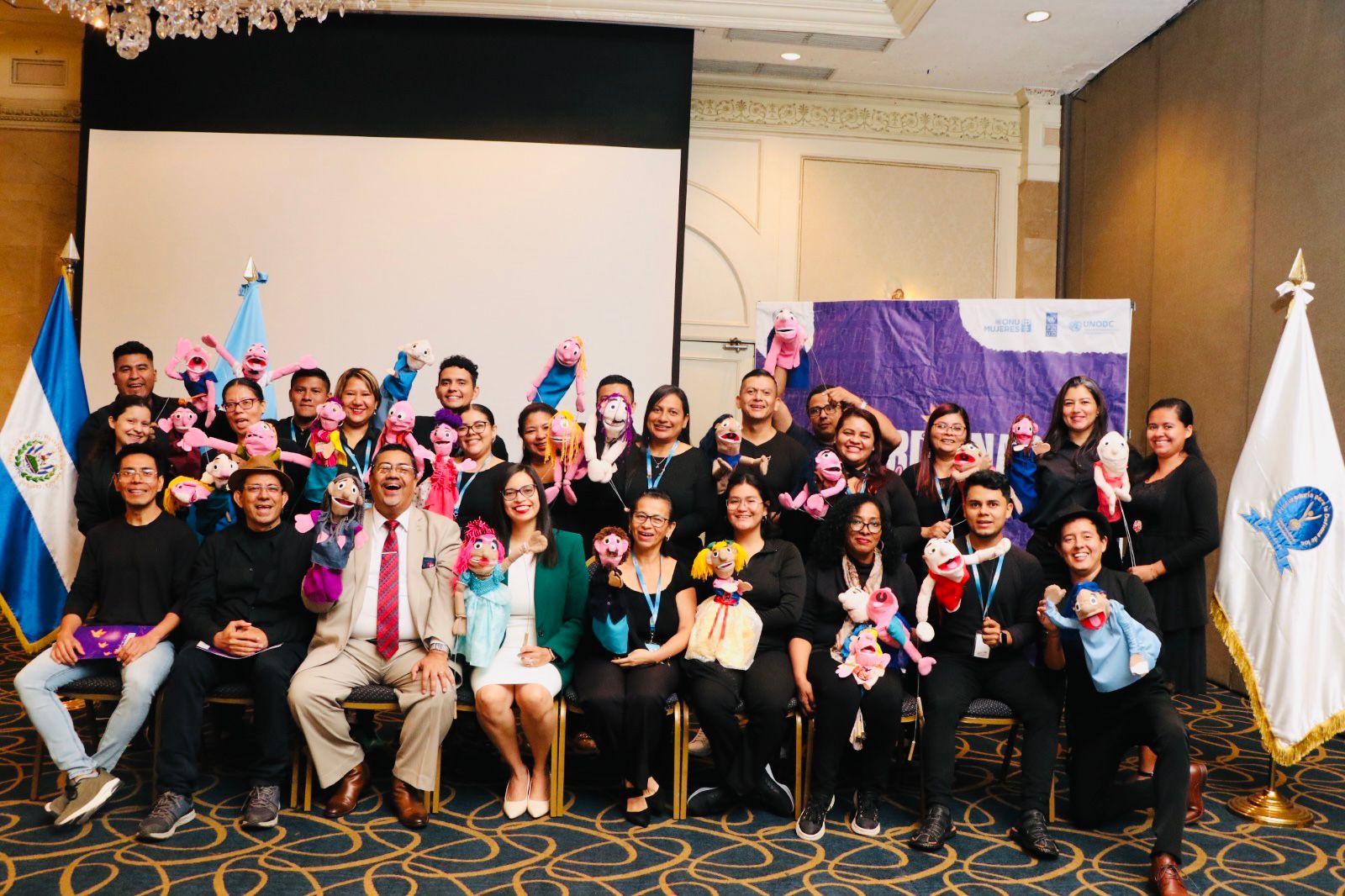San Salvador, June 11, 2024. The United Nations Office on Drugs and Crime (UNODC), in collaboration with the Office of the Human Rights Ombudsman (PDDH) of El Salvador, completed the diploma in playful learning methodologies for children with the aim of promoting the defense of human rights and a culture of peace.
This activity is carried out within the framework of the "Women Guardians of Peace" project, financed by the United Nations Secretary-General's Peacebuilding Fund (PBF), implemented by UNODC in collaboration with UNDP and UN Women.
The closing ceremony was attended by Mr. Miguel Muñoz, Director of the School of Human Rights of PDDH; Ms. Vida Gómez Asturias, Project Coordinator of UNODC; and Ms. Blanca Ramírez, Head of the Institutional Library Department of PDDH.
Delving into Historical Memory
“This project is important because it allows us to build, through learning methodologies, the way in which we can study and delve into historical memory with children and their families in all the places where we have a presence and influence,” said Mr. Muñoz during the diploma award ceremony.
“The diploma, conducted as part of the Women Guardians of Peace project, takes on the challenge of achieving intergenerational dialogue and impact while offering new tools for violence prevention,” said Vida Gómez Asturias, Project Coordinator of UNODC.
As a result, a network of 27 human rights educators was strengthened nationwide, who acquired new skills in applying playful learning methodologies focused on childhood. In particular, this program enhanced skills in oral storytelling, puppet creation and handling, and other methodologies from the perspective of promoting a culture of peace and historical memory in various areas of the country affected by the armed conflict in El Salvador.
To Make a Significant Impact
“As a trained educator, I can distinguish the extra value that this experience has left us. I have another tool to teach human rights!” said Martha Edith Maravilla, one of the workshop participants.
Stefany Girón, from the San Miguel delegation, believes that “the diploma has been an extraordinary learning experience and stepping out of our comfort zone to learn methodologies that will help me significantly impact the message we convey as an institution.”
For his part, Irving Steven González Pereira, from the La Unión delegation, said, “This training opportunity has been a beautiful and moving experience; I hope to put into practice everything I learned for the benefit of the population.”
“This diploma has been innovative and strengthened our abilities to work with children, adolescents, and even adults, all in an entertaining and fun way,” said Yennifer Margarita Sánchez from the Cabañas delegation.
For Fátima Alejandra Sarmiento Rivas, from the La Libertad delegation, “Taking this diploma has allowed me to learn new learning methodologies to impact and transform Salvadoran childhood.”
“Having the opportunity to be in this diploma has been a privilege. Learning to learn and unlearn was a challenge that was worth it; it also strengthened my abilities and awakened the desire to build,” said Doris Margarita Chávez Hernández from the Ahuachapán delegation.
In the opinion of Fanny Araujo, a participant from the Office of the Deputy Ombudsman for the Defense of Children’s and Youth’s Rights, “The training in playful methodologies allows us to share our knowledge and educate our populations on fundamental rights.”

Stefany Girón.

Irving Steven González Pereira.

Fanny Araujo.

Yennifer Margarita Sánchez.




